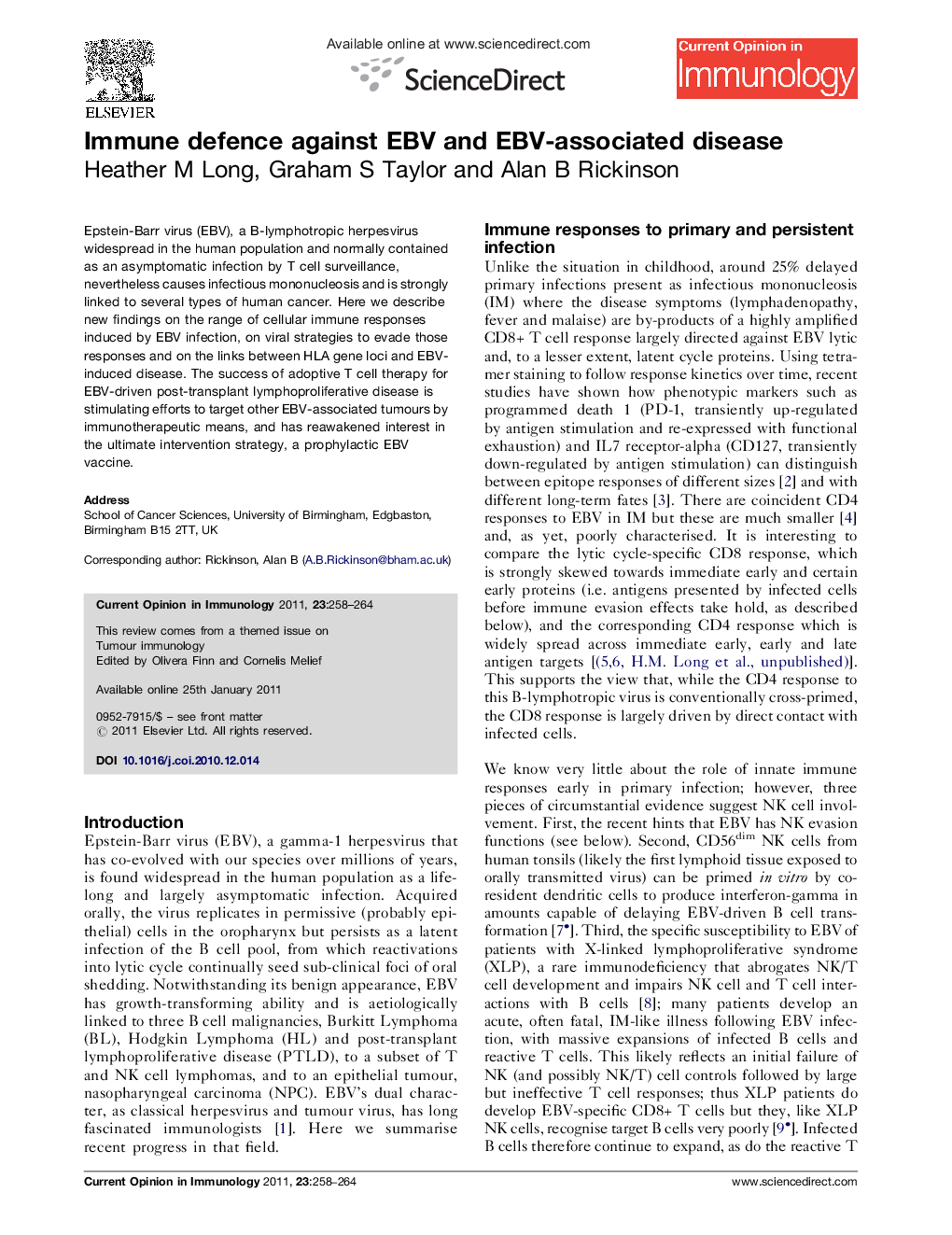| Article ID | Journal | Published Year | Pages | File Type |
|---|---|---|---|---|
| 3346024 | Current Opinion in Immunology | 2011 | 7 Pages |
Epstein-Barr virus (EBV), a B-lymphotropic herpesvirus widespread in the human population and normally contained as an asymptomatic infection by T cell surveillance, nevertheless causes infectious mononucleosis and is strongly linked to several types of human cancer. Here we describe new findings on the range of cellular immune responses induced by EBV infection, on viral strategies to evade those responses and on the links between HLA gene loci and EBV-induced disease. The success of adoptive T cell therapy for EBV-driven post-transplant lymphoproliferative disease is stimulating efforts to target other EBV-associated tumours by immunotherapeutic means, and has reawakened interest in the ultimate intervention strategy, a prophylactic EBV vaccine.
